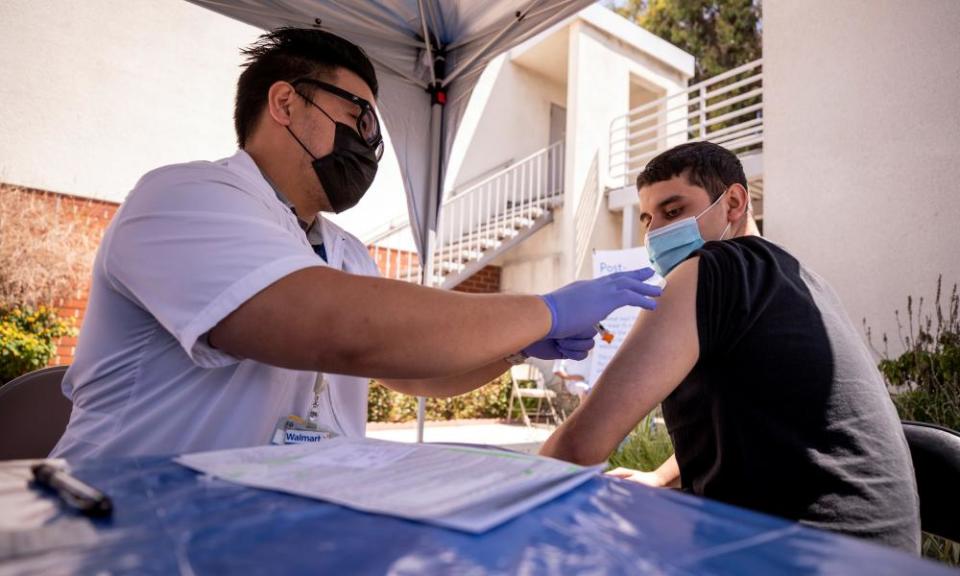Text reminders could boost vaccine uptake by 26%, study finds

Text message reminders could increase Covid-19 vaccine uptake by as much as 26%, according to research published in Nature on Monday.
Researchers at UCLA and Carnegie Mellon University in the US conducting two randomised controlled trials involving 100,000 patients found simple texts successfully boosted vaccine appointments by as much as 84% and actual vaccinations by as much as 26%.
Including “ownership language” in the form of phrases such as “the vaccine has just been made available to you” and “claim your dose today” further increased appointment and vaccination rates at UCLA Health by 1.51 and 1.09 percentage points respectively.
Related: Leaders tackle global question of how to persuade people to get Covid jab
The effect held across all demographic groups, including those who had recorded high levels of vaccine hesitancy. In England, research indicates that young people – in particular young black people – are far more hesitant about receiving the Covid vaccine.
The government is set to announce a number of initiatives intended to increase vaccine uptake among young people, including discounted journeys with the car-hailing companies Uber and Bolt, and meals from delivery service Deliveroo.
Researchers also studied the effect of inviting people to watch an informational video designed to tackle concerns about the vaccine. They found that adding the video to text reminders did not yield a detectable effect on the patients’ behaviour.
The research was investigating whether “nudge” behavioural science insights could increase vaccination rates by removing simple barriers to action such as “forgetfulness, hassle costs and procrastination”. All reminders included a direct link to a page allowing patients to schedule a vaccination appointment.
“Text reminders are both effective and inexpensive tools to motivate people across all demographics to get the vaccine,” said co-lead author Silvia Saccardo, assistant professor in the Department of Social and Decision Sciences at Carnegie Mellon University.
The paper entitled “Behavioral Nudges Increase Covid-19 Vaccinations” concluded that the most significant barrier at present was “getting patients to schedule the first-dose appointment”.
Daniel Croymans, a primary care physician and medical director of quality at UCLA Health, said: “The Delta variant is driving increased Covid infections across the globe, and currently in the US more than 97% of Covid-related hospitalisations are in unvaccinated people.
Croymans added the study “highlights that marrying text messaging, a widely accessible technology, alongside behavioural science, may help deliver messages that encourage others to get vaccinated – helping to protect our community and our economy”.

 Yahoo Movies
Yahoo Movies 